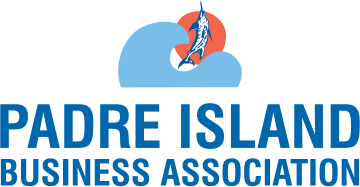The Trump administration recently signed a first phase trade deal with China after more than one year of negotiation. It’s about time! Previous Republican and Democrat administrations over the last 40 years have allowed China tariff free access to US markets without demanding equal access for US companies to export to China. As a result, we have run a 1 to 5 trade deficit with China which has offshored millions of US jobs and created 10s of millions of China jobs.
In the First phase agreement, China agreed to increase its purchases of US agriculture products and manufactured goods by guaranteed amounts to reduce the US trade deficit. Trump reduced the tariffs on Chinese exports but kept them in place in case China fails to comply with the agreement. China did not agree to stop the theft of American intellectual property (IP) or to open its basic industries to US company competition.
The book “The Coming Collapse of China”, by Gordon Chang, explains why the Chinese ruling communist party will probably never open its basic industries to foreign US competition. In those basic industries, China gives a monopoly to its State-Owned Enterprises (SOEs) and subsidizes them with government funds.
Gordon Chang says those SOEs are very inefficient, mismanaged and corrupt. SOE managers steal great amounts of the SOE assets. Those SOEs employ great numbers of Chinese workers, pay high wages and provide employee benefits such as free medical insurance and good pensions. If those SOEs were opened to US company competition, they would fail quickly, layoff all those workers and stop paying pensions to large numbers of retirees. Those workers and retirees would lead a general uprising and revolt against the Communist party rule.
Over the last 70 years of party rule, the 1.3 billion Chinese have personally experienced great pain and suffering from party mismanagement and oppression. They tolerate the party rule as long as it can produce economic growth and new jobs that raise 100s of millions of Chinese from poverty to Chinese middle class.
If they see mass job layoffs, they will join the workers and retirees in a revolt and throw out the party rulers. Party membership is less than 5 percent of the population. In a general revolt, they would lose power and their lives. The party understand their risk and has set its #1 priority as “maintaining social stability”, which is their code words for no revolt by 1.3 billion Chinese. Knowing their risks, the party is not likely to ever agree to open their basic industries to US company competition.
The culture of the Chinese people does not recognize IP. They believe IP belongs to all citizens and should be free. The party has a written policy to steal all the foreign IP it can to promote economic growth. They do that by government backed hacking of US company, university and government research and by requiring US companies to share IT with their Chinese partners. The party may never agree to stop stealing IP. Instead, President Trump should consider building cybersecurity systems that can’t be hacked. Don’t depend on China to police itself.
US economists urge China to not only open its basic industries to US company competition, but also to privatize Chinese companies. The old wisdom saying “beware of what you wish for” applies here. I read the book “Alibaba” which is a biography of the founder and CEO Jack Ma. He is a super entrepreneur who built Alibaba from nothing when China opened the online marketing industry to private business. He is the Amazon of China except Amazon has 15 percent of the US online market and he has 85 percent of the China market and is now expending globally.
I suspect there are other Jack Mas in each of the basic industries just waiting for China to open the industry to private business. Better to leave the old inefficient SOEs alone and let them continue bleeding the government and party dry and retarding economic growth. With 1.3 billion people and dozens of Jack Mas running a free market economy, China’s economy and military strength would ultimately surpass the US and we’d be at great risk.
Author: Ralph Coker
Bio: Ralph Coker is a retired petroleum refinery plant manager. He writes on business, economic, military and political topics
